Over 1.8 billion Muslims worldwide turn to Islamic stories for guidance, inspiration, and spiritual connection. I remember discovering the story of Prophet Yusuf during a particularly rough patch in my life – dealing with family betrayal and work stress that felt overwhelming. The way Yusuf handled his brothers selling him into slavery, then forgiving them years later? It completely shifted how I approached forgiveness and patience.

Look, these aren’t just dusty old stories your grandmother used to tell. These are living, breathing narratives that still hit home today – whether you’re dealing with family drama, work stress, or just trying to figure out what’s right and wrong in a messy world.
Just as 25 story theme examples show us universal themes that speak to everyone, Islamic stories pack the same punch with timeless wisdom that addresses the stuff we all struggle with.
The tricky part? Knowing which stories are legit and which ones are just nice tales someone made up. I’ve spent years digging into these narratives, and I’ve put together 25 stories that have genuinely changed how I see things. Some made me cry, others made me rethink everything I thought I knew about patience and forgiveness.
Table of Contents
-
What Makes an Islamic Story Worth Your Time
-
25 Stories That Actually Matter (Across 6 Categories)
-
Stories About the Prophets (7 stories)
-
The Companions and Early Heroes (5 stories)
-
Moral Tales That Hit Different (5 stories)
-
Wisdom Stories for Real Life (4 stories)
-
When God Steps In: Miraculous Events (4 stories)
-
-
How to Tell If a Story Is Actually Authentic
-
How These Ancient Stories Apply to Your Life Today
-
Making These Stories Come Alive for Your Family
-
Why These Stories Still Matter
TL;DR
-
Islamic stories aren’t just history lessons – they’re practical guides for handling modern life’s challenges
-
These 25 stories come from the most reliable sources: the Quran, verified prophetic traditions, and well-documented historical accounts
-
They cover everything from leadership and family relationships to personal growth and finding your purpose
-
Quranic stories are gold standard authentic, while other stories need fact-checking
-
Each category serves a different purpose: building character, inspiring change, teaching right from wrong, offering practical wisdom, and strengthening faith
-
The real magic happens when you start seeing your own struggles reflected in these ancient narratives
What Makes an Islamic Story Worth Your Time
Not every “Islamic story” floating around social media is legit. When you’re investing time in reading, sharing, or teaching these narratives, you need to know what separates the real deal from the made-up stuff.
The Real Deal vs. Everything Else
Here’s the deal with Islamic stories – some are rock-solid authentic, others… not so much. Quran stories? Those are gold standard – no questions asked. When God tells the story of Prophet Yusuf in Surah Yusuf or talks about the People of the Cave in Surah Al-Kahf, you know it’s 100% accurate.
Stories from reliable hadith collections like Sahih Bukhari and Sahih Muslim? Pretty darn good. These have been fact-checked by scholars for over a thousand years. The story of the man who killed 99 people seeking forgiveness? That’s in multiple authentic collections with solid chains of narrators.
Historical accounts about the companions and early Islamic figures need more careful checking. While they might not have the absolute authority of Quranic stories, they still offer incredible insights when they come from reliable historical sources.
Random tales your uncle heard somewhere? Maybe take those with a grain of salt.
|
Source Type |
How Reliable |
Examples |
Do You Need to Fact-Check? |
|---|---|---|---|
|
Quran Stories |
100% Authentic |
Prophet Yusuf, People of the Cave |
Nope – it’s divine revelation |
|
Solid Hadith |
Very Reliable |
Man who killed 99 people, Moon splitting |
Already fact-checked by scholars |
|
Historical Records |
Pretty Good |
Companions’ stories, Early Islamic events |
Yeah, make sure experts agree |
|
Random Stories |
Who knows? |
Local legends, Unverified tales |
Definitely research first |
Does This Story Actually Help You Grow?
The whole point of Islamic storytelling is spiritual growth. A good story should make you feel closer to Allah, more aware of His presence in your daily life, and help you understand Islamic principles better. Take Prophet Ibrahim’s willingness to sacrifice his son – that’s not just a historical event, it’s about ultimate trust in God’s plan.
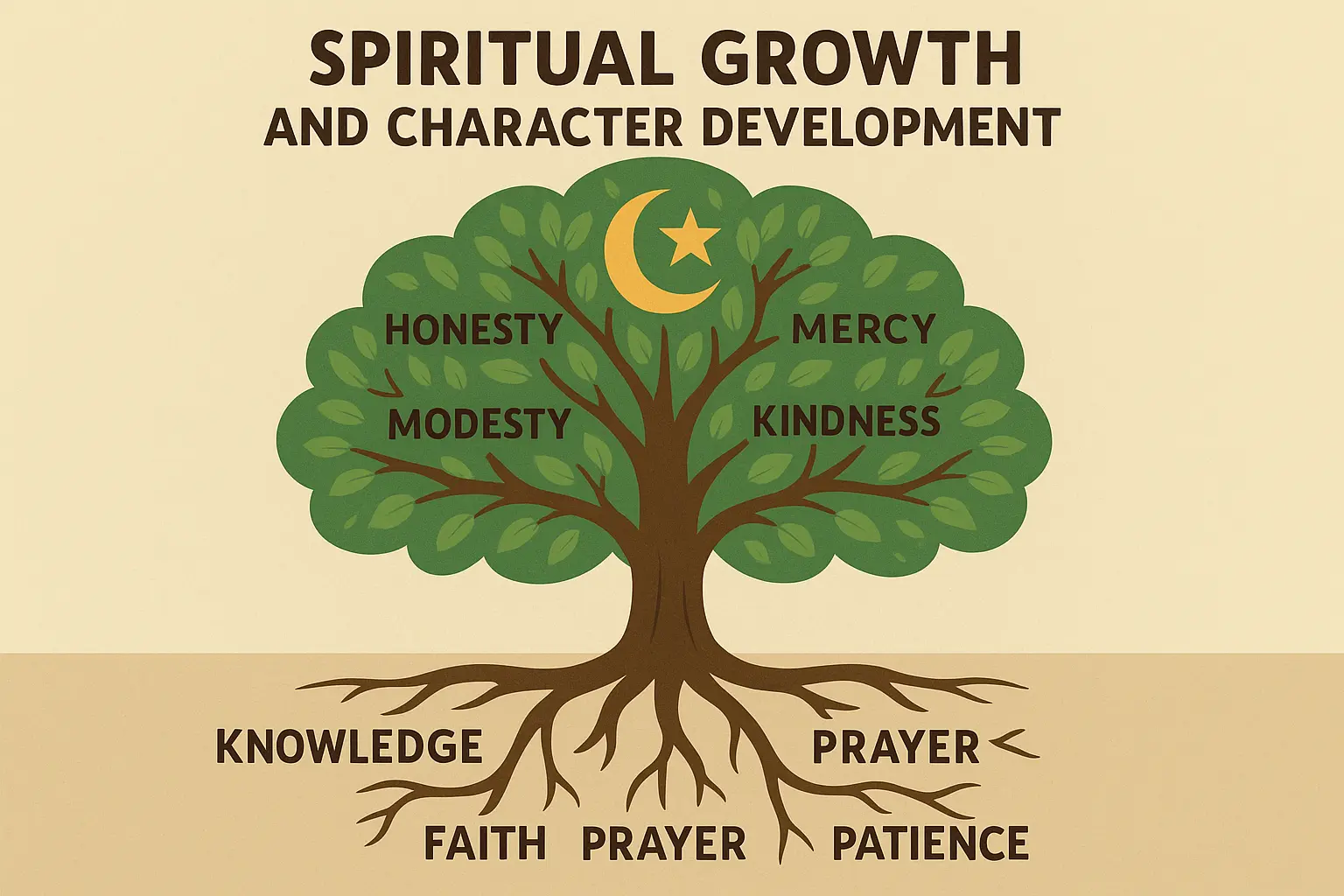
Character development is huge too. These stories should make you want to be more honest, just, compassionate, and patient. Bilal’s story always gets me – this man was literally tortured for his beliefs, yet he kept saying “One God, One God.” Makes your difficult boss seem pretty manageable, right?
Just like top moral stories that transform life, Islamic narratives give you ethical frameworks for making tough decisions through powerful examples that stick with you long after you’ve heard them.
My friend Sarah was at her wit’s end with her 16-year-old son. He was skipping school, hanging with the wrong crowd, the whole nine yards. Then she remembered Prophet Ya’qub’s response when his sons betrayed Joseph – patience and prayer, not lectures and punishment. It didn’t fix everything overnight, but it changed how she approached those tough conversations.
The best Islamic stories address stuff we all deal with: family conflicts, leadership challenges, moral dilemmas, and spiritual struggles that people face no matter what century they’re living in.
Is This Story Right for Your Audience?
Content needs to match who you’re talking to. Simple stories like the ant warning Prophet Sulaiman work great for kids, while complex narratives like Prophet Yusuf’s complete journey need more mature audiences to really get all the layers.
Similar to how best kids bedtime stories need age-appropriate content while staying engaging, Islamic stories for children should be carefully picked and adapted while keeping their spiritual core intact.
Language matters too. If you’re sharing with people new to Islam, you might need to explain terms like “jihad” (which means struggle, not what the media portrays) or “taqwa” (God-consciousness). Cultural sensitivity is key when sharing across different communities – these stories should represent Islamic traditions respectfully while being accessible to everyone.
Does the Story Actually Grab You?
Emotional connection separates stories that change your life from ones you forget by next week. The best Islamic narratives hit you in the heart, make you think, and inspire you to actually change something about how you live. Prophet Muhammad’s night journey still gives people chills and makes them want to strengthen their prayer life.
Good storytelling sticks with you. Vivid scenes, dramatic moments, profound insights – these create lasting impressions that influence how you think and act for years to come.
Contemporary relevance bridges ancient wisdom with modern problems. Stories that address current challenges – leadership dilemmas, social justice issues, family relationships, personal integrity – give you practical guidance for navigating today’s complex world.
25 Stories That Actually Matter (Across 6 Categories)
I’ve organized these stories into six categories that serve different purposes while giving you a complete picture of Islamic values and wisdom. Each one has been chosen because it’s authentic, educational, and still relevant to how we live today.
Stories About the Prophets (7 stories)

1. Prophet Ibrahim and the Fire That Wouldn’t Burn
Picture this: Ibrahim is facing down a king who thinks he’s God. The king threatens to burn him alive for smashing idols and preaching about one true God. Ibrahim doesn’t flinch. And when they throw him in that fire? God literally tells the flames to chill out. The fire becomes cool and safe. I mean, come on – that’s movie-level drama right there.
This story hits different when you’re facing pressure to compromise your values. Ibrahim could have played it safe, kept quiet about his beliefs. Instead, he stood firm even when it meant facing death. Sometimes standing up for what’s right feels like walking into fire – but God has a way of protecting those who trust Him completely.
2. Prophet Yusuf and the Ultimate Family Drama
This one starts with a kid’s prophetic dream and spirals into the kind of family betrayal that would make a soap opera writer jealous. Yusuf’s brothers literally throw him in a well out of jealousy, sell him into slavery, and tell their father he’s dead. Through slavery, false imprisonment, and eventually rising to power, Yusuf never loses his integrity.
The ending always gets me – when his brothers come begging for food during a famine, not recognizing the brother they betrayed is now the one who can save them. Instead of revenge, Yusuf forgives them. His reunion with his father Ya’qub is one of the most emotionally rich moments in religious literature.
You know that feeling when someone betrays your trust? This story is your roadmap for handling it with grace.
3. Prophet Musa vs. Pharaoh – The Ultimate Showdown
Musa goes from shepherd to liberator of an entire nation. The confrontation with Pharaoh’s magicians reads like an epic battle scene – staff turning into serpent, plagues, dramatic escapes. But what really gets me is how God prepared Musa for this mission through years of quiet shepherding.
The parting of the sea moment? That’s not just a miracle – it’s a lesson about trusting God even when you can’t see the way forward. Sometimes the path only appears when you take that first step into what looks impossible.
4. Prophet Nuh and the Ultimate Test of Persistence
Imagine preaching the same message for 950 years while people mock you daily. Nuh never gave up on his mission to guide people away from idol worship. Building that ark while everyone laughed at him? That takes some serious faith in God’s promises.
The flood story isn’t just about divine judgment – it’s about persistence in the face of ridicule and trusting God’s timing even when it seems like nothing’s happening for centuries.
5. Prophet Sulaiman and the Queen Who Met Her Match
This story has everything – a talking hoopoe bird, international diplomacy, and a queen who’s smart enough to recognize wisdom when she sees it. Sulaiman’s interaction with Queen Bilqis shows how truth ultimately wins through demonstration, not force.
What I love about this story is how Sulaiman uses wisdom instead of military might to win over the queen. Sometimes the most powerful response to opposition is simply showing a better way.
6. Prophet Isa and Miracles That Pointed to Something Greater
The Quranic account of Isa emphasizes his humanity while acknowledging his miraculous abilities – healing the blind, raising the dead, being born to a virgin mother. But every miracle pointed to God’s power, not Isa’s divinity.
This story provides clear guidance on one of the most controversial theological topics while showing how miracles should increase faith in God, not create worship of the messenger.
7. Prophet Muhammad’s Night Journey – The Ultimate Spiritual Experience
The journey on Buraq (a winged creature), meeting previous prophets in Jerusalem, ascending through celestial realms, and receiving direct divine communication – this is Islam’s most mystical prophetic story. The establishment of five daily prayers during this journey connects this incredible experience to every Muslim’s daily spiritual practice.
What amazes me is how this otherworldly experience resulted in very practical guidance for daily worship. Sometimes the most transcendent experiences lead to the most grounded spiritual practices.
The Companions and Early Heroes (5 stories)
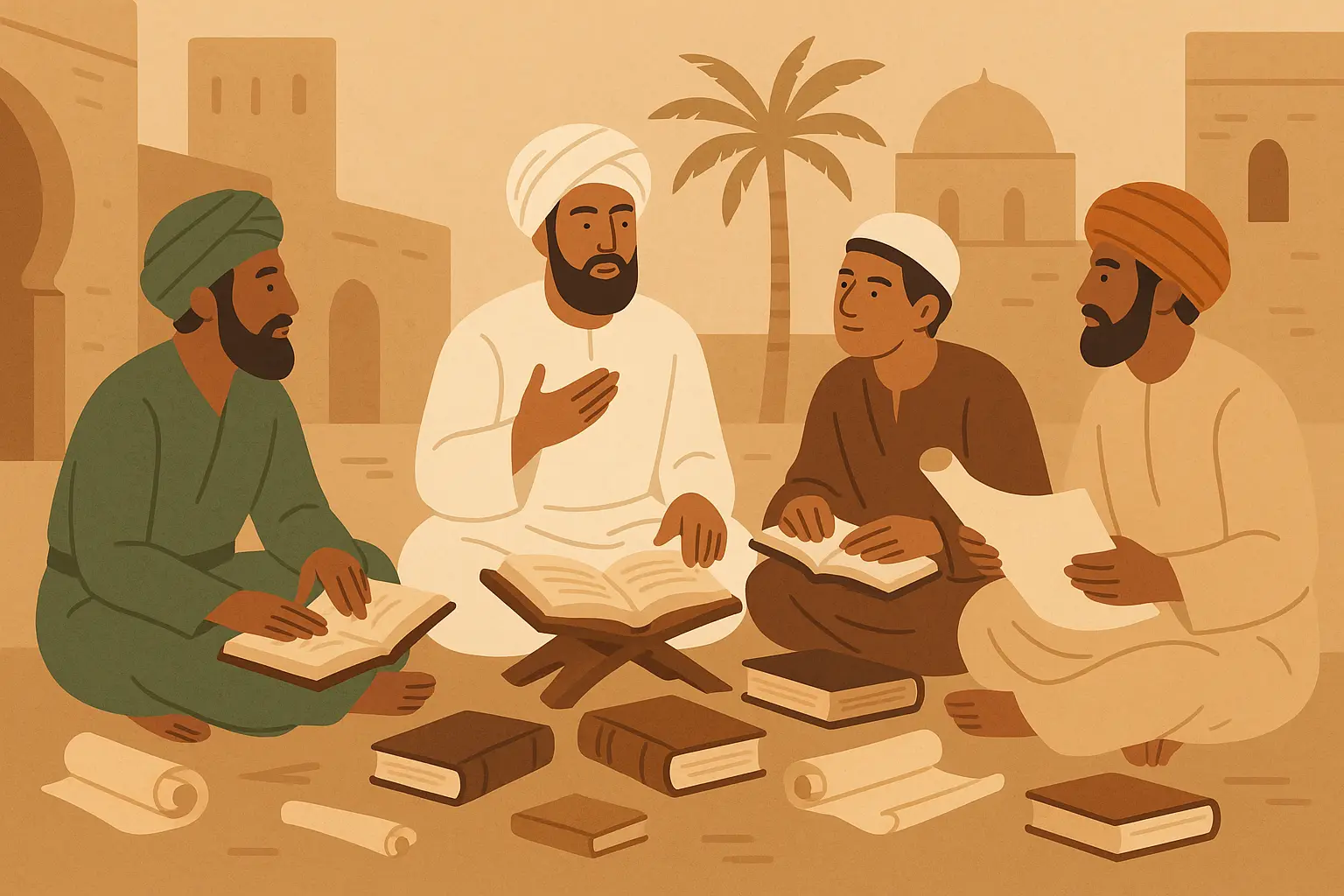
8. Abu Bakr – The Friend Who Never Doubted
When others questioned whether the night journey could really happen, Abu Bakr’s response was instant: “If Muhammad said it, I believe it.” This earned him the title “As-Siddiq” (The Truthful). His willingness to spend everything he owned for Islam and his companionship during the dangerous migration to Medina show what true friendship looks like.
When the Prophet died and the community was in shock, Abu Bakr stepped up seamlessly. That’s the kind of friend everyone needs – someone who believes in you even when your dreams sound impossible.
9. Umar’s Complete 180
Talk about a transformation story. Umar was literally on his way to attack the Prophet when he stopped by his sister’s house and heard her reciting the Quran. Something about those verses hit him so hard that he went from Islam’s fiercest enemy to its most devoted follower in one conversation.
His subsequent leadership expanded the Islamic state and established justice systems that influenced legal thought for centuries. It shows how complete surrender to truth can unlock potential you never knew you had.
10. Bilal – The Man Who Wouldn’t Break
This story hits different when you think about workplace discrimination or social injustice. Bilal was literally tortured for his beliefs – his master would put him in the desert sun with a huge rock on his chest. Yet he kept saying “Ahad, Ahad” (One, One).
When Abu Bakr freed him and the Prophet chose him to call people to prayer, it sent a clear message: Islam elevates people based on character, not social status. Bilal went from slave to one of the most honored positions in the community.
11. Khalid ibn al-Walid – From Enemy to “The Drawn Sword of Allah”
This guy initially fought against Muslims at the Battle of Uhud and almost won. After converting to Islam, he never lost a single battle across Arabia, Iraq, and Syria. His innovative military tactics, including the famous pincer movement at Yarmuk, changed military history.
What gets me is how someone who was initially an enemy became one of Islam’s greatest champions. It’s never too late to switch sides and fight for what’s right.
12. Aisha – The Scholar Who Preserved Prophetic Wisdom
As the Prophet’s wife and Abu Bakr’s daughter, Aisha had unique access to prophetic teachings. She transmitted over 2,000 hadiths and became one of Islam’s greatest scholars, teaching both men and women.
Her story breaks stereotypes about women’s roles in Islamic scholarship. She was consulting on legal matters and teaching religious principles well into her later years, preserving knowledge that would have been lost otherwise.
Moral Tales That Hit Different (5 stories)
13. The People of the Cave – The Ultimate Stand for Principles
These young men faced a choice: compromise their beliefs or leave everything behind. They chose to sleep in a cave rather than worship idols. God caused them to sleep for over 300 years. When they woke up, their coins were so old they’d become historical artifacts. Talk about culture shock.
This story always gives me chills. Imagine being so committed to your principles that you’d rather lose everything than compromise. These days, when peer pressure and social media make it easy to go along with the crowd, this story hits hard.
14. Qarun – The Rich Man Who Forgot Where He Came From
Despite starting as part of Prophet Musa’s community, Qarun let wealth go to his head. He became arrogant, oppressed his people, and boasted about his riches. When people advised gratitude and charity, he basically said, “I earned this myself.”
The earth literally swallowed him and his treasures. It’s like a cosmic reminder that no matter how successful you get, humility and gratitude aren’t optional. The business owner who forgets their humble beginnings? That’s basically Qarun in a modern suit.
15. The Three Men and the Test of Gratitude
God sent an angel to test three men who had been cured of leprosy, blindness, and baldness. The angel, disguised as someone with their former conditions, asked each for help. The former leper and bald man, now wealthy and healthy, basically said, “I don’t know what you’re talking about. I was never sick.”
The formerly blind man welcomed the angel, shared his wealth, and said, “I was indeed blind, and God cured me.” Guess who kept his blessings?
These Islamic stories demonstrate how motivational stories transform mindset through powerful examples of gratitude and compassion, showing how remembering our struggles can inspire us to help others facing similar challenges.
This story hits home for anyone who’s overcome difficulties. Success shouldn’t make you forget where you came from – it should make you more compassionate toward others still struggling.
16. The Man Who Killed 99 People
After killing 99 people, this man sought guidance about repentance. A misguided scholar told him forgiveness was impossible, so he killed the scholar too, reaching 100 murders. A wise scholar then told him to leave his toxic environment and seek God’s forgiveness in a righteous community.
While traveling toward redemption, he died. Angels of mercy and punishment argued over his soul. God measured the distance – he was closer to the good city than the bad one, so mercy won.
I get chills every time I read this. No matter how far you’ve fallen, sincere repentance and a genuine desire to change can lead to divine forgiveness. That’s hope for anyone carrying heavy guilt about their past.
17. The Ant and Prophet Sulaiman
This one always makes me smile. Here’s this powerful king with a massive army, and he stops everything because he overhears an ant warning her friends to get out of the way. Instead of being offended (“Did that ant just call my army dangerous?”), he’s grateful he can understand her.
That’s some serious emotional intelligence right there. True leadership means caring about everyone under your influence, even the smallest and seemingly least important.
Wisdom Stories for Real Life (4 stories)
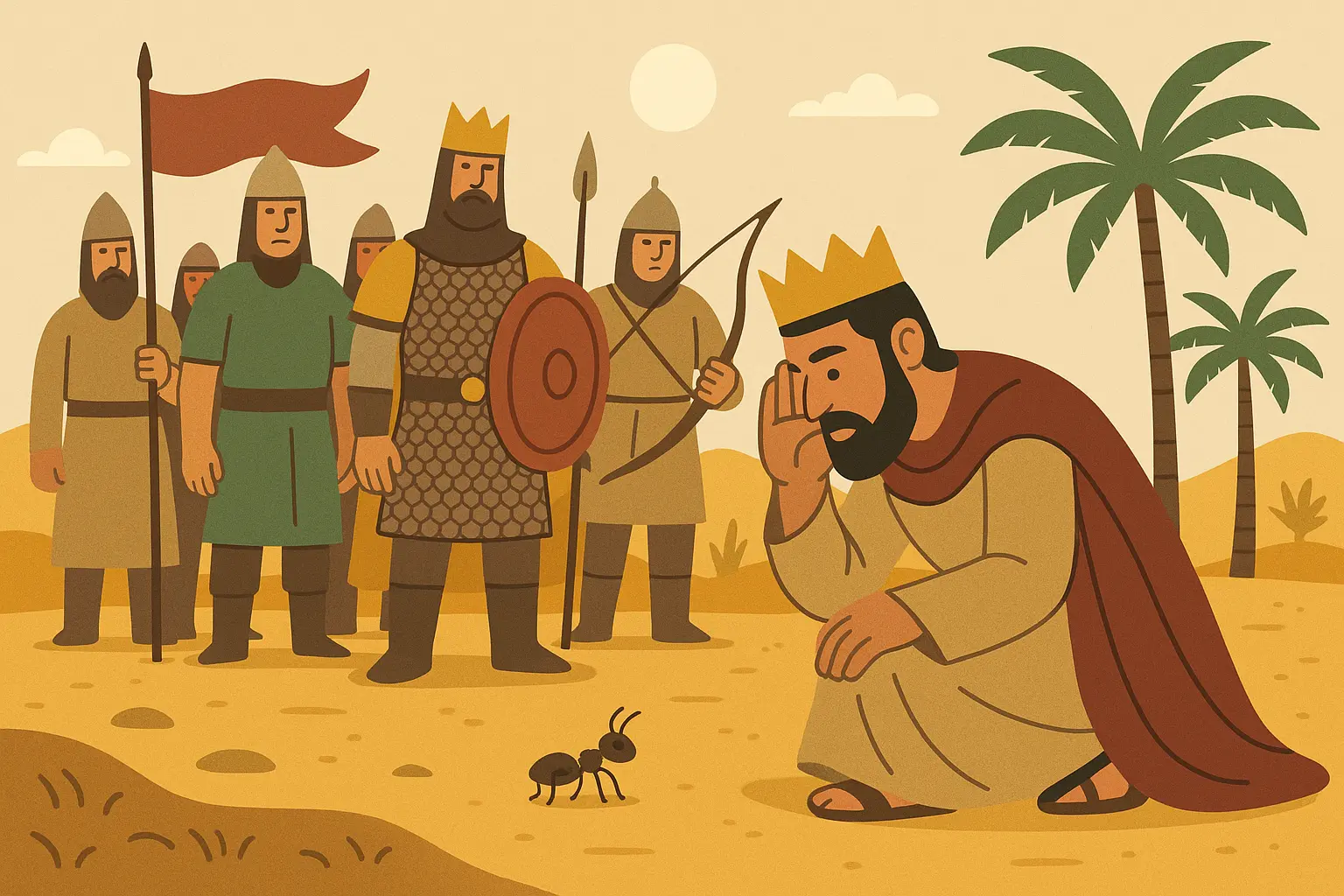
18. Luqman’s Life Lessons to His Son
Luqman’s advice covers everything a parent wishes they could teach their kids: worship God alone, be grateful to your parents (but don’t compromise your beliefs for them), remember that God sees everything you do, pray regularly, stand up for what’s right with patience, don’t be arrogant in social situations, and speak with humility.
It’s like the ultimate parenting playbook. Every piece of advice addresses real issues kids face growing up, from peer pressure to family dynamics to finding their voice in the world.
19. The Power of Words
A good word is like a healthy tree – strong roots, reaching branches, and fruit that keeps benefiting people. Bad words are like uprooted trees with no stability or lasting value.
This parable changed how I think about social media posts, work emails, and even casual conversations. Every word you speak either builds something lasting or tears something down. Choose wisely.
20. The Tale of Two Gardens
A wealthy man bragged to his poor friend about his productive gardens, claiming his wealth would last forever and denying any accountability to God. The poor man warned him about ingratitude and reminded him of God’s power.
Sure enough, the wealthy man’s gardens got destroyed. He ended up regretting his arrogance and finally acknowledging that God controls everything.
This story nails the danger of thinking your success is entirely self-made. Whether it’s your business, your health, or your relationships – it can all change in an instant.
21. True Believers vs. Show-Offs in the Mosque
During mosque gatherings, sincere believers showed consistent devotion and genuine spiritual concern whether anyone was watching or not. The show-offs only got religious when they had an audience.
This one stings because it’s so relevant. How many of us post inspiring quotes on social media but struggle with basic kindness in private? Authenticity means being the same person whether you’re on stage or alone in your room.
When God Steps In: Miraculous Events (4 stories)

22. The Moon That Split in Two
When the Meccan disbelievers demanded a miraculous sign, Prophet Muhammad pointed to the moon, which split into two distinct parts visible to everyone. The two halves separated so clearly that Mount Hira appeared between them.
Even after witnessing this unprecedented miracle, many dismissed it as magic. It’s a reminder that some people will explain away even the most obvious signs rather than admit they might be wrong.
23. Angels at the Battle of Badr
Outnumbered three to one by the Meccan army, the Muslim forces received divine backup – thousands of angels fighting alongside them. Some believers could actually see them, while others just felt their impact through the decisive victory.
This battle established Islam’s military credibility and showed that when you’re fighting for what’s right, you’re never really alone, even when the odds seem impossible.
24. The Elephant Army That Never Made It
Abraha, the Christian ruler of Yemen, marched toward Mecca with a massive army including war elephants, planning to destroy the Kaaba and redirect pilgrimage to his cathedral. God sent flocks of birds carrying stones of baked clay, which they dropped on the invading army, destroying them completely.
This happened the same year Prophet Muhammad was born. Sometimes divine protection works in ways that seem impossible but are perfectly timed.
25. The Spider’s Web and Dove’s Nest That Saved Two Lives
While hiding in the cave during their dangerous migration to Medina, Prophet Muhammad and Abu Bakr were protected when a spider quickly spun a web across the cave entrance and a dove built its nest there.
When Meccan pursuers reached the cave, they figured no one could have entered recently without disturbing these natural barriers. They searched elsewhere, allowing the Prophet and his companion to escape safely.
Sometimes the smallest creatures become part of the biggest plans. God’s protection often comes through the most unexpected means.
How to Tell If a Story Is Actually Authentic
Understanding how to spot authentic Islamic stories saves you from wasting time on fake narratives while ensuring you get the most reliable guidance available.
The Authentication Hierarchy
Quranic stories get the highest authenticity rating because they’re direct divine revelation. Stories like Prophet Yusuf’s complete narrative or the People of the Cave carry absolute spiritual authority and need no additional fact-checking.
Hadith-based stories need verification through established collections like Sahih Bukhari and Sahih Muslim. The authentication process involves checking the chain of narrators and their reliability throughout history. Scholars have been doing this work for over a thousand years.
Historical accounts about companions need scholarly consensus and documentation through reliable Islamic sources. While these might not have the absolute authority of Quranic stories, they provide valuable insights when properly verified.
What Makes a Story Worth Your Time
Spiritual development is the main point. Quality stories should strengthen your relationship with God, increase awareness of His presence in daily life, and deepen understanding of Islamic principles through compelling examples.
Character building through Islamic values is huge. Stories should inspire honesty, justice, compassion, patience, humility, and other Islamic virtues through examples that make you want to change how you live.
|
Story Type |
Main Educational Value |
Best For |
Key Lessons |
|---|---|---|---|
|
Prophet Stories |
Faith building, Divine guidance |
Everyone (adapted for age) |
Trust in God, Following prophetic example |
|
Companion Stories |
Character development, Historical inspiration |
Teens and adults |
Personal transformation, Dedication |
|
Moral Tales |
Right vs wrong, Understanding consequences |
Everyone |
Ethics, Divine justice |
|
Wisdom Stories |
Practical guidance, Life skills |
Adults and mature teens |
Decision-making, Relationships |
|
Miracle Stories |
Faith confirmation, God’s power |
Everyone (adapted) |
Divine omnipotence, God’s intervention |
Contemporary relevance ensures ancient wisdom applies to modern challenges. The best Islamic stories address timeless human struggles that people face regardless of when they’re living.
Matching Stories to Your Audience
Content complexity needs to match your audience’s maturity and Islamic knowledge. Simple stories with clear lessons work for kids, while complex narratives with multiple themes need more mature audiences.
Language accessibility ensures effective communication. Islamic terms might need explanation depending on your audience’s background knowledge, while maintaining the story’s essential meaning.
Cultural sensitivity matters when sharing across different communities. These stories should represent Islamic traditions respectfully while being accessible to people from various backgrounds.
What Makes a Story Actually Grab You
Emotional connection separates life-changing stories from forgettable accounts. The best Islamic narratives touch your heart, challenge your thinking, and inspire actual positive change through relatable characters and compelling conflicts.
Good storytelling sticks with you. Vivid scenes, dramatic moments, and profound insights create lasting impressions that influence your thinking and behavior for years.
Structural excellence means well-developed plots with clear beginnings, engaging developments, and satisfying conclusions that reinforce the story’s message while maintaining tension and building toward meaningful resolutions.
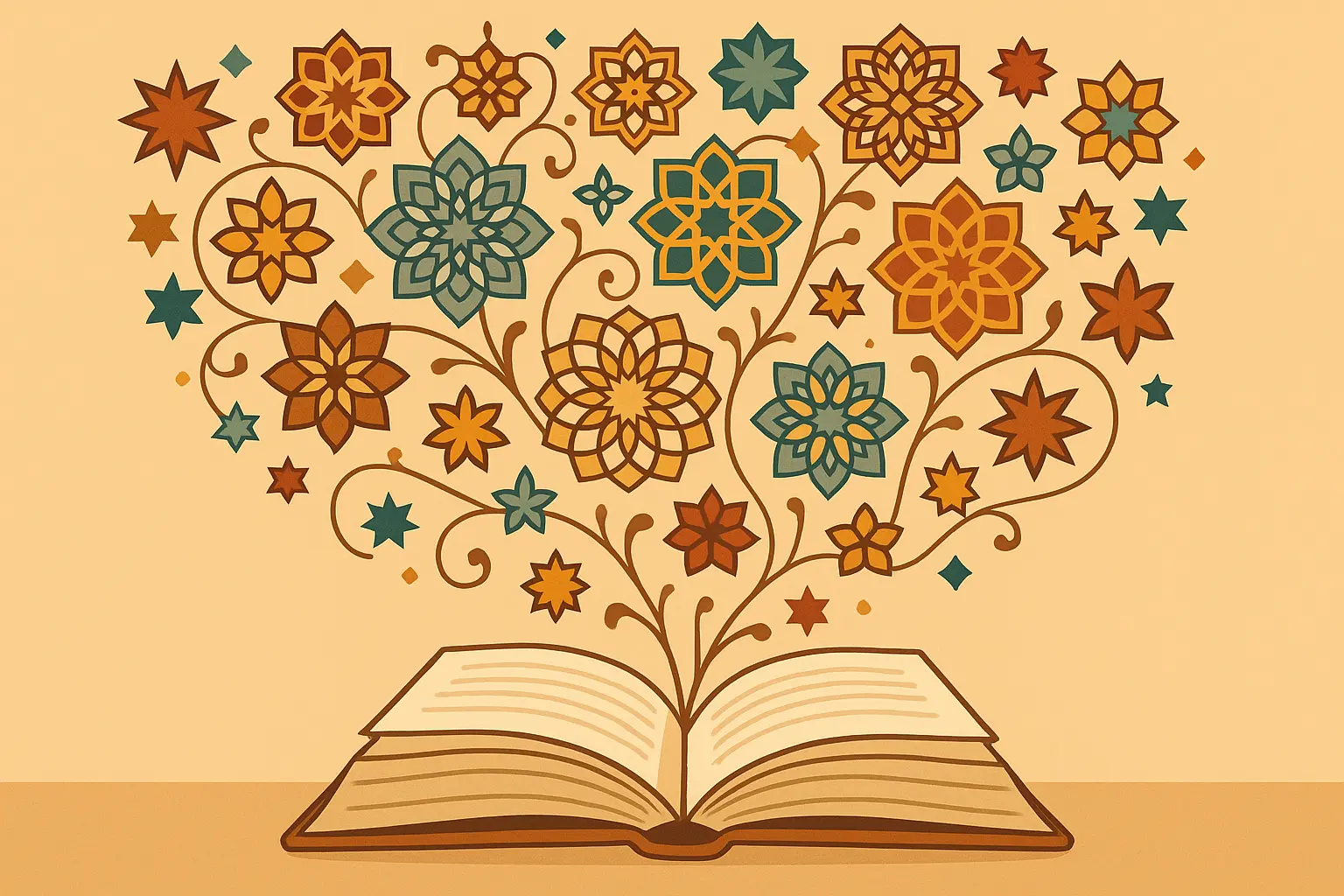
How These Ancient Stories Apply to Your Life Today
The real value of Islamic stories isn’t just their historical significance – it’s how they give you practical guidance for contemporary challenges and opportunities for growth.
Personal Development That Actually Works
Prophet Yusuf’s story gives you a complete playbook for handling betrayal, false accusations, and workplace challenges while keeping your integrity intact. Got a coworker who threw you under the bus? Joseph’s boss’s wife tried to seduce him, and when he refused, she accused him of assault. He could have gotten bitter, could have plotted revenge. Instead, he kept his integrity and trusted that truth would eventually win. Spoiler alert: it did.
Umar’s transformation shows that dramatic personal change is possible no matter your past or current circumstances. His journey from Islam’s fiercest opponent to its most devoted follower proves that sincere repentance and commitment to truth can completely redirect your life.
The story of the man who killed 99 people offers hope for anyone carrying serious guilt about past mistakes. It shows that genuine repentance and sincere desire for change can lead to divine forgiveness, no matter how severe your previous actions.
Family and Relationship Guidance That Works
Luqman’s advice to his son creates a complete parenting framework covering spiritual education, character development, and social conduct. His approach balances firm guidance with loving concern, giving modern parents practical examples for raising kids with strong values.
Prophet Yusuf’s family drama addresses sibling rivalry, parental favoritism, family betrayal, and ultimate reconciliation through forgiveness. The story shows how families can heal from serious conflicts through patience, wisdom, and commitment to forgiveness and mercy.
The Prophet’s relationship with Aisha demonstrates respectful marriage dynamics, intellectual partnership, and mutual support between spouses. Their interactions show how Islamic marriages can combine love, respect, and shared commitment to spiritual growth and community service.
Leadership and Professional Applications
Prophet Sulaiman’s wisdom in governance, his diplomatic approach with the Queen of Sheba, and his respect for all creation provide comprehensive leadership models. His ability to combine power with humility, justice with mercy, and strength with wisdom offers practical guidance for contemporary leaders in business, politics, and community organizations.
Khalid’s military leadership demonstrates strategic thinking, adaptability, and ethical conduct under pressure. His innovative tactics, combined with his commitment to Islamic principles even in warfare, provide models for leadership under pressure and ethical decision-making in competitive environments.
Umar’s administrative innovations, his accessibility to citizens, and his personal accountability as a leader establish standards for public service and organizational leadership that remain relevant for contemporary managers and public officials.
Social Justice and Community Building
Bilal’s story directly addresses racial inequality and social justice, showing how Islam elevates people based on character rather than social status or ethnic background. His journey from slavery to spiritual leadership provides inspiration for contemporary social justice movements and community building efforts.
Prophet Musa’s confrontation with Pharaoh offers a framework for challenging systemic oppression and advocating for the marginalized. His courage in speaking truth to power, combined with his reliance on divine support, provides guidance for contemporary activists and community organizers.
The grateful leper story teaches community responsibility and the importance of remembering those in need, especially after achieving success or overcoming personal challenges. This emphasizes social solidarity and mutual support within communities.

Making These Stories Come Alive for Your Family
Having access to authentic Islamic stories is just the beginning. The real challenge is presenting these narratives effectively to your specific audience while keeping their spiritual integrity and educational value intact.
For Teachers and Content Creators
Want to know what actually works with kids? Don’t just read them the story – let them BE the story. My nephew loves acting out the ant warning Prophet Solomon’s army. Sure, he gets a bit dramatic with the ant voice, but he remembers the lesson about respecting all of God’s creatures.
Interactive methods increase engagement and retention. Role-playing exercises, creative writing assignments based on story themes, and group discussions about contemporary applications help students internalize lessons and develop personal connections to the narratives.
|
Age Group |
Best Stories |
How to Adapt |
What They’ll Learn |
|---|---|---|---|
|
Ages 5-8 |
Ant & Sulaiman, Spider’s Web |
Simple words, pictures |
Basic kindness, God’s protection |
|
Ages 9-12 |
Prophet Yusuf (simplified), Bilal’s story |
Activities, role-play |
Perseverance, standing up for beliefs |
|
Ages 13-16 |
Umar’s transformation, Luqman’s wisdom |
Discussion groups, modern examples |
Critical thinking, making good choices |
|
Adults |
Full stories, complex themes |
Analysis, real-life applications |
Leadership, spiritual growth |
Instead of just testing whether they remember facts, create assignments that make students analyze character motivations, identify moral lessons, and propose how story principles apply to contemporary situations.
For Parents and Family Storytelling
Bedtime storytelling provides natural opportunities to share Islamic narratives with children. Break complex stories like Prophet Yusuf’s journey into age-appropriate episodes, focusing on key lessons while maintaining the essential spiritual message. The ant and Prophet Sulaiman story works perfectly for younger kids because it’s short and has a clear lesson.
Daily life connections help children see story relevance in their own experiences. When your child faces bullying, reference Bilal’s perseverance. During sibling conflicts, discuss Prophet Yusuf’s forgiveness of his brothers. These connections make ancient wisdom immediately applicable to contemporary childhood challenges.
Family discussion traditions around Islamic stories create lasting memories and reinforce values. Weekly story sessions where family members take turns sharing narratives or discussing their applications build strong family bonds while passing Islamic heritage to the next generation.
For Writers and Content Developers
Blog content development using Islamic stories requires careful balance between accessibility and authenticity. You can modernize language and presentation style while maintaining the core spiritual message and avoiding changes that might compromise the story’s Islamic character or historical accuracy.
Social media works great for bite-sized story segments that capture attention while encouraging deeper exploration. A single Instagram post might highlight one lesson from Prophet Sulaiman’s wisdom, with captions that invite followers to reflect on contemporary applications.
Long-form content allows for comprehensive story exploration, detailed analysis, and extensive contemporary application. This format works well for educational materials, comprehensive guides, and in-depth spiritual development resources.
Using Modern Storytelling Tools
Digital storytelling platforms enable creative presentation of Islamic narratives through multimedia elements, interactive features, and global distribution capabilities. Podcast formats work particularly well for detailed story exploration, while video content can bring narratives to life through visual storytelling techniques.
This is where Nairrate’s AI-powered storytelling tools become invaluable for anyone looking to share Islamic stories effectively. Whether you’re developing educational content, creating family-friendly adaptations, or crafting engaging presentations, Nairrate’s Story Starters Generator can help you find compelling ways to introduce these timeless narratives to contemporary audiences.
For educators, Nairrate’s tools can help develop lesson plans that connect Islamic stories to curriculum objectives while maintaining student engagement. The AI understands narrative structure and can suggest creative approaches for presenting complex stories like Prophet Yusuf’s journey in age-appropriate segments.
For content creators, Nairrate’s Story Prompt Generator provides inspiration for blog posts, social media content, and educational materials based on Islamic themes. The AI’s cultural sensitivity training ensures suggestions respect Islamic traditions while appealing to diverse audiences.
For parents and family storytellers, Nairrate can help adapt complex Islamic narratives into bedtime stories, create discussion questions that connect stories to daily life, and develop creative activities that reinforce story lessons through interactive engagement.
The combination of authentic Islamic narratives with modern AI storytelling assistance creates unprecedented opportunities for sharing these timeless stories with global audiences while maintaining their spiritual integrity and educational value.
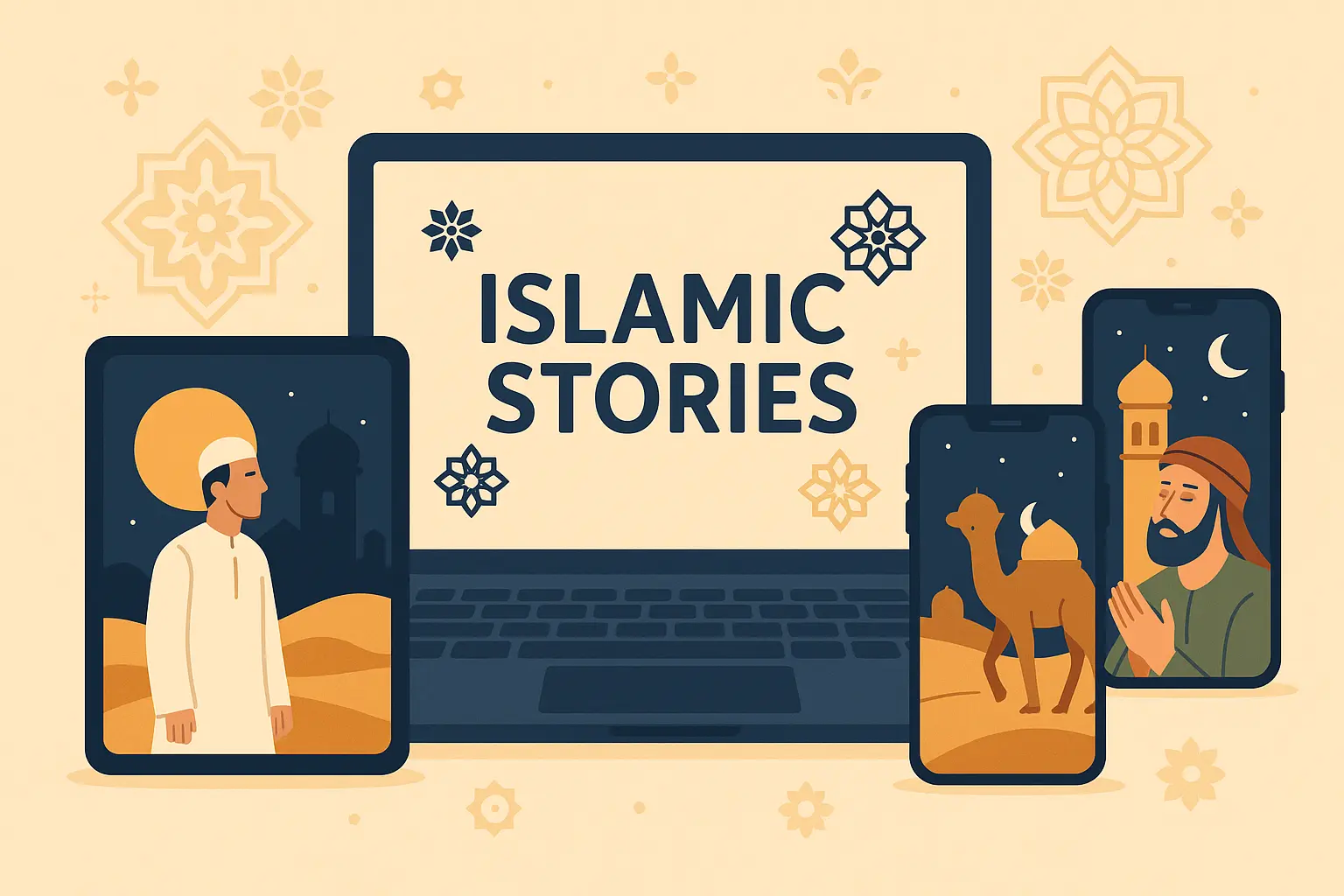
Why These Stories Still Matter
These 25 Islamic stories aren’t just history lessons or nice moral tales – they’re practical guides that keep offering wisdom, inspiration, and real guidance for contemporary life challenges. From Prophet Ibrahim’s unshakeable faith when facing fire to the humble ant’s interaction with Prophet Sulaiman, each story has layers of meaning that speak to different aspects of human experience and spiritual growth.
What makes Islamic storytelling so powerful is its timeless relevance. Whether you’re dealing with personal struggles that mirror Prophet Yusuf’s trials, looking for leadership guidance through Prophet Sulaiman’s wisdom, or seeking inspiration from Bilal’s perseverance, these stories provide frameworks for navigating modern challenges while maintaining Islamic principles and values.
What makes these narratives particularly powerful is their combination of spiritual authority and practical application. Quranic stories carry divine authenticity, while hadith-based accounts provide prophetic guidance, and historical narratives offer human examples of Islamic principles in action. This comprehensive approach ensures you have access to guidance that addresses both spiritual growth and practical life management.
The evaluation criteria we’ve explored – authenticity, educational value, audience appropriateness, and narrative quality – give you tools for selecting additional Islamic stories beyond this collection. As you continue exploring Islamic literature, these standards will help you identify narratives that offer genuine value and authentic guidance rather than folklore or unverified accounts.
Remember that the real impact of these stories comes not from reading them once, but from reflecting on their lessons, discussing their applications, and integrating their wisdom into daily life. Whether you’re sharing them with family, using them in educational settings, or drawing personal inspiration from their examples, these narratives work best when they become part of ongoing spiritual and character development rather than one-time entertainment.
The contemporary relevance of these ancient stories demonstrates Islam’s timeless wisdom and its ability to provide guidance across cultures and generations. In our rapidly changing world, these stable sources of wisdom offer anchoring points for maintaining Islamic values while navigating modern challenges and opportunities.
Don’t just read these stories once and move on. Live with them for a while. When you’re stuck in traffic and someone cuts you off, remember Joseph forgiving his brothers. When work gets overwhelming, think about Noah building that ark one plank at a time. These aren’t just stories – they’re tools for becoming the person you want to be.
Bottom line: these stories work because they’re about real human struggles. Fear, jealousy, forgiveness, standing up for what’s right when everyone thinks you’re crazy – that’s not ancient history, that’s Tuesday. They don’t just teach you about faith – they teach you about being human. They show you that struggling doesn’t make you weak, that forgiveness doesn’t make you naive, and that standing up for what’s right is never easy but always worth it.



Add comment